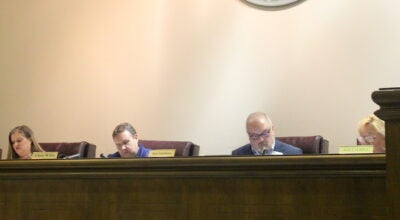How will Voting Rights changes affect Pelham?
Published 11:40 am Tuesday, June 25, 2013

Pelham officials praised a June 25 U.S. Supreme Court decision to overturn portions of the Voting Rights Act. (File)
By NEAL WAGNER / City Editor
Pelham officials said they are pleased with a June 25 U.S. Supreme Court decision to overturn parts of the Voting Rights Act of 1965, and said the decision will save the city “significant” amounts of time and money in the future.
In its decision, the Supreme Court struck down Section 4 of the Voting Rights Act, effectively repealing a law requiring Alabama and municipalities in 16 other states to seek preclearance from the U.S. Justice Department before making voting or election-related changes.
The law also required Pelham to seek approval from the Justice Department before annexing or de-annexing residents into the city, said Pelham Finance Manager Tom Seale.
“For us, it will mainly streamline the process for annexation,” Seale said, noting the Voting Rights requirements presented a “significant” financial and time burden to the city. “That was a cost that the public never saw. We are pleased that has been overturned.”
A contingent of Pelham residents currently zoned for Chelsea schools are considering de-annexing from the city if Pelham one day forms its own school system.
Pelham Mayor Gary Waters said the Supreme Court’s decision will not heavily impact the city’s election process, as Pelham officials are elected at-large rather than by ward.
“With Pelham, we are not like Alabaster in that we don’t have districts or wards. Pelham elects its mayor and City Council at-large,” Waters said.
Under the Voting Rights Act requirements, cities with electoral wards were required to approve all changes to ward lines or voting locations with the Justice Department.
“Should we ever have the desire to change (to the ward system), I can see that process becoming easier because of this,” Waters said. “Now, we have a law that applies equally to everyone nationwide. What’s wrong with that?”









